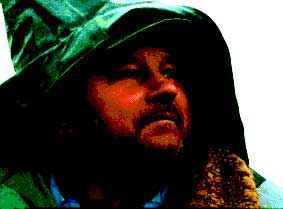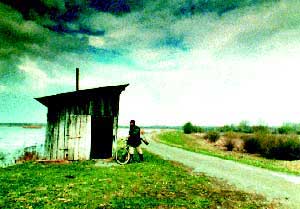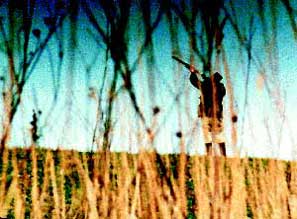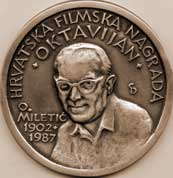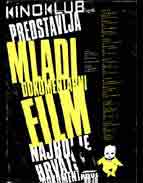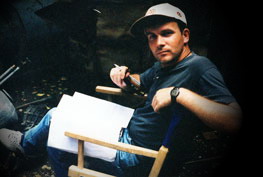
| |
| Home |
| BIOGRAPHY |
| FILMOGRAPHY |
| CURRENT PROJECT |
| PRESS |
| CONTACT |
The Cormorant Scarecrow
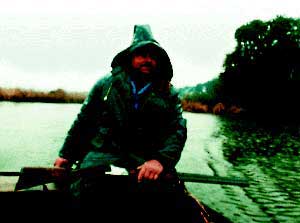 download hi - res image 286 KB |
Synopsis:The film deals with people who work at a fish farm in Donji Miholjac in Croatia and who are responsible for scaring away cormorants who eat fish stocks (which serves as food for humans). The problem is that cormorants are protected by law and because their habitats are located in neighboring Hungary, the daily lives of these people is Sisyphean absurd job. The film simply aims at telling the story about an occupation, unusual not only because it's rare, but also because it's self-sufficient. It is a real "life on a small scale", a micro universe nearing extinction. To these people, guarding the fish farm by scaring away the cormorants is not a mere job but an obsession of sorts, and it doesn't end when the working day comes to end. The reason for this attitude perhaps becomes clearer if we translate the administrative, dry description of their job into more human language. This case is a battle for existence in it's most elementary form. Naturally, the cormorants are not doing a job in what they have "hidden" intentions, but they are merely trying to survive. And what could be called their "guilt" is exclusively a human categorization. On the other hand, the occupation of the guards is a factor of existential security, as long as the cormorants are there. Therein lies the key to the relationship between the cormorants and their "scarecrows". This film has tried to show the compelling interdependence created in this way. Film Director's Statement: The Cormorant Scarecrow is a black humor real life story. The film deals with people who work at a fish farm in Donji Miholjac in Croatia and who are responsible for scaring away cormorants who eat fish stocks (which serves as food for humans). The problem is that cormorants are protected by law and because their habitats are located in neighboring Hungary, the daily lives of these people is Sisyphean absurd job. The film simply aims at telling the story about an occupation, unusual not only because it's rare, but also because it's self-sufficient. It's a microcosm that is disappearing. To guard a fishpond and scare away the distant cormorants is not only a job, but also a form of an obsession that does not end at the end of the working day. Naturally, the cormorants are not doing a job in what they have "hidden" intentions, but they are merely trying to survive. On the other hand, the occupation of the guards is a factor of existential security, as long as the cormorants are there. This film has tried to show the compelling interdependence created in this way.
Festivals:
|
GRAND PRIX Award - the best film In
conclusion, documentary film in the '90s definitely failed to make
an artistical record of the drama that surrounded it. Nevertheless,
from the production of the period one could piece together two programmes
of exellent films including Hotel Sunja, Sky over Osijek, Radio
station Krapina, Mirila, The Cormorant Scarecrow, The Duel,
BBB, The Hallway and The Corn Road. These documentaries
could easily constitute the list equal to that of some of the best
decades of Croatian documentary. "The Cormorant Scarecrow is a black humour real life story and for many was the best Croatian documentary in 1990-es."
|
